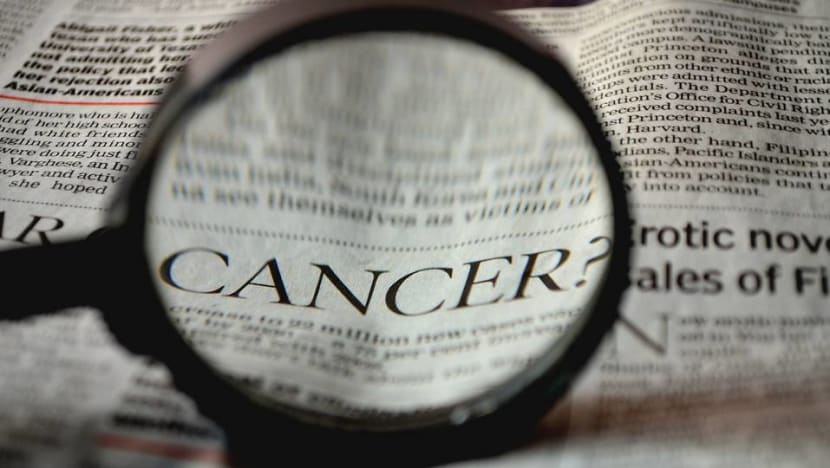Cancer myths: The misconceptions that are not easily debunked

(Photo: Pixabay/PDPics)
SINGAPORE: Google "cancer myths" and up pops a list of websites refuting anti-cancer diets and alternative treatments. While some of these myths have proven to be misleading or inaccurate, others can be less definite.
Here are four commonly asked questions about what increases or reduces the risk of cancer, and what doctors say about them.
MYTH 1: EATING OUT INCREASES YOUR CANCER RISK
Large and frequent helpings of red meat and processed food may increase the risk of colon and stomach cancer.
However, that there is no direct link between eating "outside" food and an increase in cancer risk compared to having home-cooked food. Eating out simply means you may be more tempted to order processed food.
Another downside to eating out, is you will have less control over how food is cooked. For instance, you can't control how charred your steak is, and so, you can't limit the cancer-causing carcinogens that may increase your risk of developing pancreatic cancer by up to 60 per cent, according to a University of Minnesota study.
MYTH 2: INCLUDE SUPERFOODS TO BEAT CANCER
Consuming more anti-cancer food like kale, garlic, blueberries and green tea is not going to protect you from cancer. In fact, there is no such thing as a superfood that can fight cancer, according to Gerard Wong, senior dietitian with Allied Health Parkway Cancer Centre.
"Cancer is a complex disease that affects different people differently. Claims that one type of food or fruit has the power to cure or prevent cancer entirely are a gross oversimplification. Ultimately, a well-balanced diet and healthy lifestyle are still the main key to reducing the risk of getting cancer," he said.
Eating more of such food, however, does have its merits as fruit and vegetables are part of a balanced diet.
MYTH 3: CUT OUT SUGAR TO PREVENT YOUR BODY FROM GROWING CANCER
The fast-growing rate of cancer cells means that they require large amounts of fuel - mainly glucose derived from sugar and carbohydrates.
However, there is no evidence that shows a sugar-free diet lowers the risk of getting cancer. According to the website of Cancer Research UK, all the cells in the body need glucose to function and there is no way of directing glucose to only non-cancer cells. Even when sugar and carbohydrates are cut from the diet, the cancer cells can resort to fat and protein for fuel.
But there is an indirect link between cancer risk and sugar through obesity. The over-consumption of sugar can lead to weight gain. French researchers have reported in The Lancet Oncology that nearly 500,000 cancer cases worldwide each year are linked to obesity. According to recent reports, public health experts predict that in the US, obesity will soon overtake tobacco as the leading preventable cause of cancer.
Excess fat can function like a gland that secretes hormone-like substances that control growth, metabolism and reproductive cycles. It is these processes that fat is able to turn on and off that can affect cancer, especially breast and womb cancers, according to Cancer Research UK.
MYTH 4?: USING A MOBILE PHONE INCREASES CANCER RISK
The verdict is still out on this one.
The radiofrequency energy emitted by the mobile phone, and even non-communication gadgets such as the microwave oven, is considered non-ionising radiation. Ionising radiation, on the other hand, comes from X-rays and exposure to cosmic rays.
"We only know that high doses of ionising radiation is associated with an increased risk of developing blood cancers," said Dr Colin Phipps Diong, a consultant in haematology oncology at Parkway Cancer Centre. "This form of radiation is not the same as the radiofrequency radiation used in the telecommunications industry."
However, Dr Diong conceded that research has not been able to establish what kinds of non-ionising radiation may lead to cancer. For instance, rodents were found to have a higher incidence of malignant brain tumours when exposed to Code Division Multiple Access (CDMA for 2G and 3G phones), while those exposed to Global System for Mobile Communications (GSM for 4G phones) had no association with cancer.
Those were the partial results released by the US National Toxicology Program in May 2016. The complete results will be announced for peer review and public comment by early 2018.
"This study highlights the difficulties in establishing cancer risk to different types radiation exposure, and the need for proper understanding of what exactly is being studied," said Dr Diong.














